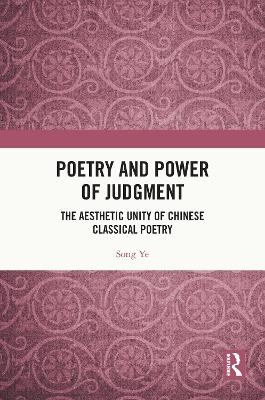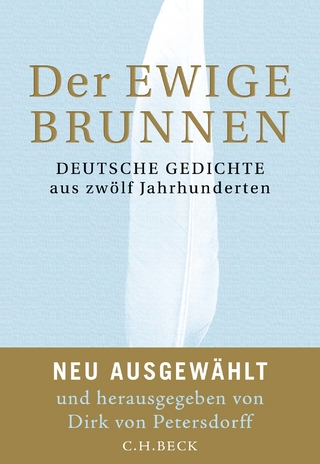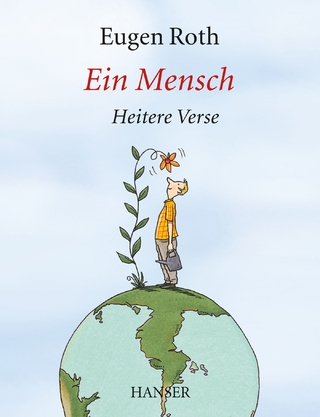
Poetry and Power of Judgment
Routledge (Verlag)
978-1-032-78375-8 (ISBN)
- Lieferbar (Termin unbekannt)
- Versandkostenfrei innerhalb Deutschlands
- Auch auf Rechnung
- Verfügbarkeit in der Filiale vor Ort prüfen
- Artikel merken
This book examines Chinese traditional poetry with an emphasis on the sources of pleasure in creating and appreciating classical Chinese poems and the basis for valid aesthetic judgments about poetry.
The pleasure derived from art plays a crucial role in people’s evaluation of its worth. This book shows that Chinese classical poetics and Western aesthetics agree on the sources of aesthetic pleasure. Both hold, despite their obvious differences, that aesthetic taste essentially involves cognition. The book explores important ideas in traditional Chinese poetry, emphasizing that “Poetry is founded upon the power of judgement (shi).” This central idea guides other key concepts throughout the history of Chinese poetics, revealing the fundamental principles of creating and appreciating poetic art. The author presents new views of traditional Chinese poetry and poetics by unifying these long-dispersed basic propositions into a new coherent cognitivist framework that also gives due importance to emotion.
Scholars and students studying Chinese literature, poetics, philosophy of art, and philosophy of mind will find this book interesting.
Song Ye is currently a lecturer at Hebei University, China. His research interests include the Chinese classical poetics, Chinese and Western aesthetics, and Chinese classical poems. He is also a poet and has published his own classical poetic work, Collection of Poetic Insights (Yuanshi Ji, 2018).
Introduction 1. Beyond aesthetic tastes: Why can beauty make universal claim? 2. Universal cognitive laws upon which aesthetic judgment of Chinese classical poetry is grounded 3. The proposition with the most salient cognitive attributes in the history of Chinese poetics: Poetry is founded upon the power of judgment 4. The relationship among “aspiration,” “emotion,” and “judgment,” and the intermediary role of “intent” 5. An analysis of the cognitive nature of “intent” 6. How qi (vital force) and ge (manner) lead to the issue of “judgment”: The examination on qi and ge 7. “Principle” (li) and “judgment”: An examination of “principle” 8. “Ideorealm” and “judgment”: Cognitive issues in “ideorealm”
| Erscheinungsdatum | 10.07.2024 |
|---|---|
| Verlagsort | London |
| Sprache | englisch |
| Maße | 156 x 234 mm |
| Themenwelt | Literatur ► Lyrik / Dramatik ► Lyrik / Gedichte |
| Geisteswissenschaften ► Sprach- / Literaturwissenschaft ► Anglistik / Amerikanistik | |
| Geisteswissenschaften ► Sprach- / Literaturwissenschaft ► Literaturwissenschaft | |
| Sozialwissenschaften ► Soziologie ► Spezielle Soziologien | |
| ISBN-10 | 1-032-78375-3 / 1032783753 |
| ISBN-13 | 978-1-032-78375-8 / 9781032783758 |
| Zustand | Neuware |
| Haben Sie eine Frage zum Produkt? |
aus dem Bereich


